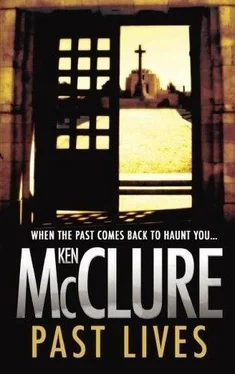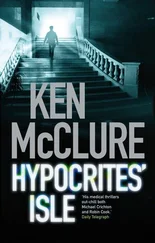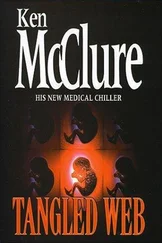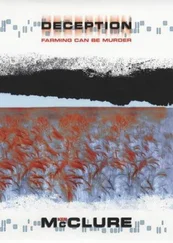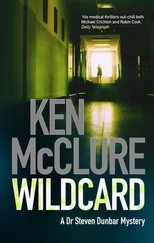‘You have to admire his devotion.’
‘What about the paperwork?’ asked Karen. ‘Won’t this all take time to set up?’
‘I’ve checked. What we’re planning won’t come under experimental surgery,’ said Macandrew. ‘I just need the relatives’ permission.’
‘That’ll certainly make life easier,’ said Karen. She looked down at Macandrew’s hands. ‘How do they feel?’
‘I’ll probably have to retire a bit early from surgery and I guess I can look forward to arthritis in old age and when the weather gets cold but I think they’re okay. Either way, I’m going to find out in the morning.’
‘I’ll be rooting for you, Mac, and I’ll start checking out possibles for your trial.’
Macandrew went through his normal pre-op ritual of scrubbing up and gowning and masking properly before entering the autopsy suite just because he needed the trappings of normality. He needed to embrace the routine. The cadaver of a forty-three year old man who had died from lung cancer had been laid out for him on the table by Lessing’s staff in the small room usually reserved for performing autopsies on dangerous bodies — containment of bacteria and viruses was easier here. He picked up a scalpel from the steel instrument tray and immediately felt vulnerable, pausing before making the first incision, knowing that it was yet another milestone moment in his life. Finally, he brought the knife round in a smooth confident sweep and started to feel better.
He had set himself a series of ordered tasks, starting with large organ removal and proceeding to more demanding dissections where he would have to work for progressively longer periods within millimetre margins of neighbouring tissue that he had determined he mustn’t damage. On a corpse, it didn’t matter. On a living patient, a nicked artery could turn the whole world red and spell disaster for both surgeon and patient.
He was working on his third cadaver of the day, a thirty-seven year old woman who had been killed in a car crash up on the interstate, when Saul Klinsman came into the room and watched him work in silence for a few minutes. Finally, he said, ‘It’s after seven, Mac.’
‘I didn’t realise it was that late.’
Klinsman moved in closer. ‘Supposing I were to tell you, Doctor, that this patient has a tumour the size of a pea three centimetres to the right of where you’re working and lying at a depth of one and a half centimetres...’
Macandrew took a fresh scalpel and forceps and exposed the area swiftly and skilfully. He said, ‘I’d say you were misinformed.’
Klinsman grunted and made to leave. He turned as he got to the door. ‘Welcome back.’
Macandrew returned to scheduled surgery the following Monday after Klinsman had worked out a wind-down schedule with the locum who had been covering for him in his absence. It was agreed that Macandrew would return with a light workload, which would increase over the coming weeks until a complete handover had been effected. It had been a tough day for him but one that had gone well and now, at the end of it, he knew that he was back in business. He was still feeling good when he phoned Simone in early evening to tell her the news.
‘I’m so glad, Mac. I wish I was there to give you a big hug.’
‘Me too,’ said Macandrew with heartfelt feeling.
‘Does this mean that we can go ahead with the trial?’
‘I think it does,’ replied Macandrew. ‘I spoke to Karen Bliss, one of our staff psychiatrists: she’s going to come up with a list of patients she thinks might be suitable. She’ll get back to me soon.’
‘I’ll start preparing the activator.’
Two days later, Karen Bliss appeared in Macandrew’s office with the case notes of seven patients suffering from altered personality that she thought he should consider. He stayed on in the evening to go through them.
He eliminated two almost immediately because their brain scans showed that they were damaged in areas outside the region behind the pineal gland. The other five however, did show signs of damage in this area. He eliminated one more because of complicating factors in the patient’s medical history, which made any kind of further surgery inadvisable, but that still left four good candidates.
It took a further week to secure the consent of the patients’ relatives — although they didn’t take much persuading. It was more difficult to convince Saul Klinsman that brain surgery for free was a good idea.
‘Call it an investment in the future, Saul.’
‘And if it should go wrong?’
‘The relatives know the risks and have signed papers to that effect. They’re prepared to take the chance because they feel they haven’t got anything to lose. These patients do not have any kind of quality of life at all. They’re kept sedated out in Farley Ridge because they’d end up committing suicide if they weren’t. Being a semi-comatose vegetable isn’t my idea of life. I suspect it isn’t theirs either, if only they could tell us.’
‘You’re sure about the permission situation?’
‘I’ve checked thoroughly and it’s been agreed that the surgery is not experimental.’
‘Then I wish you luck. Who’s first?’
‘George Elroy — been up in Farley Ridge for eight years after suffering severe head trauma in an accident on the farm he worked on.’
‘Elroy?’ said Klinsman thoughtfully. ‘I think I remember him. I did the remedial surgery myself if I’m not mistaken.’
‘You did,’ agreed Macandrew. ‘It’s in his records. When he got sent home, his wife maintained that he’d become hell to live with and that he simply wasn’t the George she had known and loved for more than twenty years. He got worse over a period of time and in the end was taken into Farley Ridge and kept under sedation after trying to cut his wrists a couple of times. His wife never divorced him though; she always hoped he’d get better one day. She was more than happy to give her permission when we approached her.’
Klinsman nodded. ‘I hoped you didn’t build her hopes too high.’
‘I told her the truth — that I didn’t know what the chances were.’
Macandrew operated on Elroy on the second Monday after his return to surgery. He used the least invasive route to reach the pineal gland, entering at the corner between nose and right eye and then introduced a length of plastic, 3 millimetre tubing to give access to the region of the brain immediately behind. When the scanner told him that the end of the tube was in exactly the right position, he injected a small quantity of activator into the space and let the fluid bathe the area for fully two minutes before draining it off into a steel bowl and closing up.
Macandrew left the patient in the charge of the nurses and went down to see Elroy’s wife, Ethel, and her eldest son who’d accompanied her, in the waiting room on the ground floor. He assured her that the surgery had gone well. The only thing they could do now was wait and hope for the best. It was a ritual he’d gone through hundreds of times before but this was the first time that he had been more anxious than the waiting relatives. During the recovery period, he paced up and down his office, occasionally sitting down to try and work but always getting up again after only a few minutes to resume pacing. He snatched at the phone when it rang.
‘Mr Elroy is coming round,’ said the nurse.
Macandrew hurried down to the recovery room.
‘Where...?’ groaned Elroy.
‘You’re in Kansas University Med Center, George,’ said Macandrew, kneeling down to be beside the patient’s ear. ‘You had an accident.’
‘The baler... it hit me. I was crossing the yard and I tripped over that damned fool dog, Duke — that mutt’s got less brains than a fence post. Chuck didn’t see me lying there when he came out the barn... Damned thing hit me... Jesus!’
Читать дальше
